- Home
- Joelle Charbonneau
Verify Page 3
Verify Read online
Page 3
“I know, but I didn’t. Don’t be mad,” she says.
I blink. “I don’t understand. Why would I be mad?”
“Because I submitted something for you.”
Before I can decide if I’m mad or not, she rushes to say, “My father explained the situation to someone he knows in the City Pride Department, and they said they would take a look at your work. So my mom helped me put together a few things that you sent me when you were starting on your portfolio, and I sent them in. They haven’t made their final decision yet, and they are interested in seeing more.”
My heart jumps, then crashes back to earth. “You talked to your dad—about me?”
“Hey, I do what I have to when it’s important,” Rose says. “And this isn’t just about your mom’s painting, it’s about your entire future. That’s important, Meri.”
Even when her parents were still married Rose didn’t have to avoid talking to her father because he was rarely around. And when he was around he wanted everything to be done the right way—which meant his way. Rose says it is because he’s so used to being in charge at work. Which could be true, but that doesn’t make it any easier to deal with.
Some days, I’m convinced that Rose continues to be my friend because I am one of the few people who genuinely couldn’t care less that Mr. Webster works in the Public Awareness and Outreach Office down the hall from the mayor or that her mother is the editor in chief of the most popular fashion magazine in the country. Almost everyone in school and most of their parents subscribe for the fashion spreads, feel-good makeover stories, and lifestyle tips. Just tap any picture and acquire what you need to brighten your own world!
When I was little, I had no idea how important Rose’s mom’s magazine was or where her dad’s office was located—which is the reason we are friends now. Had we met in high school instead of knowing each other most of our lives, I would never even have tried to speak to her.
Not that she would have noticed. There are a million others lured into her orbit by her glamorous parents, her stunning beauty and smarts and stature. Rose has no lack of people who would be happy to go to parties with her and gossip about boys and clothes if I disappeared. Yet she puts up with my moods and withdrawal. She tolerates my obsession with my mother’s painting and doesn’t ask questions that I know she must have about why I won’t let her near my father. She insists on being my friend even when I’m terrible at returning the favor. Thank goodness, because she’s the only person I know I can count on, even when I find myself not wanting to count on anyone.
Taking a deep breath, I ask, “The committee—do they actually like my work or are they interested in seeing more because your father asked them?”
“Does it matter?” she asks. “You want to learn more about your mom so you can finish her work. The best way to do that is to talk to the people who might know what inspired that work. Do you really care if having connections is what got you through the door?”
Resentment bubbles thick and black because I do care. The idea that someone would pretend I am talented in order to curry favor with Rose’s father makes my stomach turn. But I bite back my indignation because this is Rose. She wouldn’t hurt me on purpose. And when I set aside my ego and think about her words, I realize she isn’t wrong. If finishing my mother’s work is important to me, then the only thing that matters is arriving at that goal. And having my work submitted means I might still have a chance.
“You have a point,” I admit.
Rose’s laugh rings bright like the sun. “Good. I like to be right. They have to make a decision on who gets into the program really soon, so—”
“How soon?”
“By tomorrow night.”
“What?”
“Don’t freak out,” Rose insists, and waves to her brother, who nods back. “All you have to do is go by their office before then with your real portfolio. My mom told Isaac to drive us, and he said he could if we do it now.”
“Now?” The word catches in my throat. Isaac strides across the grass toward us. His smile is teasing, and the wink he gives me says he knows what it feels like to be neatly trapped into doing something by his sister.
“If I’m going take Meri to Liberty Tower we have to get going. I have to meet Dad at his office later, and you know how he is about being late.”
“If that’s the case then maybe I should just—”
“No backing out.” Rose grabs my arm and pulls me off the picnic table. “We can drop by your house for you to change clothes and download any files you need for your portfolio, then head over there. They said it wouldn’t take long, so you should be back home in no time. And maybe you’ll see or hear something inspiring to you when you’re there. Like your mom did.”
The mention of my mother gets me moving, just as Rose knew it would. We climb into the new black sedan Isaac’s dad gave him earlier in the month. Isaac had wanted a sports car. Instead, he got the same model his father drove, but with bright gold wheels. Isaac mutes the National News Screen on the dash and cranks the music. Rose yells at him from the back seat to slow down.
“Not all of us drive like turtles. Right, Meri?” Isaac yells over the wailing of guitars, drums, and bass.
The trip to my house takes a matter of minutes. I jump out of the car and turn to Rose, who is starting to climb out. “You don’t need to come in. I’ll be out in a flash.” I turn and hurry toward the brick bungalow before Rose can follow.
It takes me just a few minutes to change from my school uniform into a pair of black pants decorated with large yellow and orange and white flowers and a white top. I tuck in the shirt, tie the belt, and slip on a pair of yellow high-top sneakers, knowing full well Rose will complain about my wardrobe choice the minute I get to the car. But when I tie an orange scarf around my neck and look in the mirror, I actually smile at the reflection. While I still see the fatigue beneath the makeup, for the first time in forever I see something other than the hurt I’ve felt since my mother’s accident. I see me.
With a nod, I head to Mom’s studio to transfer the few finished portfolio projects from her computer to my tablet. While I wait for the computer to boot, I glance around the sunlit room at the paintings scattered throughout the space. A large painting created just before I was born shows a gold-and-silver city stretching toward the sky. Sitting behind it—a lake of brilliant blue. Another from a year ago hangs near the hallway door and depicts a blue cobblestone path winding through a park filled with children of all ages. After I pull up the files I need, I step to a corner of the room where a group of small, unframed canvases leans against the base of the wall—out of sight so my father won’t have to see them if he decides to open the door and step inside. These are the pieces she worked on during the months leading up to the accident.
Unlike all her other works, these are abstracts. A half circle of burnished red seemingly guarded by a fence of deep maroon against a background of silver. A heavy, dark-gray form that reminds me of a wrought-iron flower. A stiff beige ribbon that slashes from one corner of the canvas to the opposite corner on the bottom of the other side. What looks like the tip of a black boot on a block of light blue stone. A line of seven red rectangles marked with a strange winged figure painted in gold—and finally, the one that she had yet to finish.
A horn honks, reminding me that I’m supposed to hurry. Still, I take one last look at the group of paintings. While I didn’t understand what drove her to paint them, I recognize the talent that made the images leap off the canvases. All my life I have worked to be as skilled an artist as my mother. I’m not. Even without the small head-shakes of disapproval she used to give my screen, I knew that. But if she could take the risk of creating something this different, maybe I should take a chance on the unknown, too.
The horn honks again as I leave a message on the kitchen memo screen for my father in case he gets home before me. Then, clutching my tablet tight to my chest, I hurry outside.
The music has been turned down from
deafening to bearable. The minute I get in, Isaac peels away from the curb and Rose begins a steady stream of instructions that cause me to rub my palms on my pants.
“Katy Mitchell runs the City Art Program, but Victor Beschloss is the one that you’ll be meeting with. Dad says he is a good guy.”
Which meant he probably never unbuttoned his collar and didn’t smile a whole lot.
“Tell him all about your love of art and design and why you want to be a part of the program and how important you think the program is to our city and to our national identity.”
“Maybe I should salute the flag while I’m at it?” I ask sarcastically. Although it would be easy enough to do, since every house and business was gifted a flag at the time the new star was added.
Isaac grins at me as he stops at a light. Rose continues her monologue as if I never interrupted her.
“Make sure you smile.”
As if smiling is really my thing.
“Mention how your mother’s pieces, created on behalf of the government, influenced your own creations.”
So basically, lie.
“Tell him how you want to use your art the way she did—to celebrate our society and to do your part to keep the country safe and strong and prosperous.”
Finally something I can say without feeling like an impostor. “Okay.”
“And don’t gnaw on the ends of your hair.”
I drop the strands of damp hair from my mouth and put my hands back in my lap.
“Lay off,” Isaac says as he steers around a cab that is letting a passenger out. “You’re making her nuts, Rose.”
“Meri knows I’m just being helpful.”
“Meri knows you are pushy and is too nice to tell you that you sound like one of the spokespeople for Dad’s office.”
“I’m not that nice,” I say, even though Isaac’s right. Rose does sort of sound like the talking heads on one of the country’s two news channels. They all smile in a way that, in recent months, totally grates on my nerves.
“But I am trying to focus,” I admit. “That might be easier if I just have a little space to think.”
“See.” Isaac smiles at his rearview mirror. Rose sighs but is quiet for the next several blocks. We drive across the Chicago River, sparkling gray blue as it snakes through the city. Isaac honks to get the cars in front of him moving, and my stomach flips when I see Liberty Tower—the building where my mother used to work—come into view. A large screen shows the projects that the department housed inside has worked on throughout the year. It’s a reminder to everyone how far we have come since the days when Chicago was the most dangerous city in the country.
Isaac maneuvers the car to the curb in front of the rust-colored stone building that Mom told me was one of the most historic in the city—built after the Great Chicago Fire on the site of the old City Hall.
“Good luck,” Isaac says as he brings the car to a stop. “Call us when you are ready to be picked up.”
Rose frowns. “But—”
“She can handle this part alone,” Isaac cuts off his sister. “Right, Meri?”
I nod, hoping he’s right. Rose shouts good luck to me and reminds me again about my hair as I walk down the sidewalk toward the arching stone entryway and gold doors that shine in the late-afternoon sun. Other than the required billboard-sized screen above the front doors, the outside of the building is stately and beautiful in its construction. But it is the lobby that once again takes my breath away. White marble columns and walls all etched with gold greet me. I clutch my tablet tight to my chest as I walk under the words “THE ROOKERY” toward a security official ensconced in a white-and-gold marble nook.
I give him my name and nervously wait as he calls up to the head of the City Art Program to see if I am expected.
“Mr. Beschloss will be leaving soon, but he says I can let you up.” He pushes out of his chair with a wince.
“You don’t have to get up,” I say. “I know where the elevator is. My mother used to work here.”
He shakes his head and ambles down the hallway. “Mr. Beschloss is on the eighth floor.” When the gold elevator door opens, he holds up a red-and-white identification badge marked “CSS,” then waves it in front of a small black scanner. “The elevator won’t take you to that floor without this. He’s in suite 802. Good luck.”
“Thanks.” I look toward the atrium that Mom loved, before stepping onto the elevator. A week after she died, the guard on duty felt sorry for me and let me sit in the atrium, staring at the glass ceiling and the sweeping staircases. The building was known for them. The City Pride Department took over the building mainly because of the historically beautifully architecture. The head of the department claimed it was only fitting the group be housed in a place designed to inspire.
The elevator dings, and I exit. Unlike the floor where my mother worked, whose halls were filled with murals of their previous projects and displays of working models of redesigned buildings, the eighth floor is stark. It has bare white walls and metal-gray floors. Aside from the whoosh of the elevator doors behind me, everything is dead quiet.
The few times I came to the office with Mom, there was always the hum of conversation or music playing from someone’s speakers, giving the place a sense of life. There are no voices behind the closed steel doors on this floor. It feels sterile. Vacant. Unwelcoming.
Clutching my tablet tight to my chest, I take three slow steps down the hall, then stop in front of a door marked “ARCHIVES.” It has a black scanner box next to the handle of the door, similar to the one the guard operated in order for me to get to this floor. The high security was another difference from Mom’s level.
“Merriel Beckley?”
I jump and spin at the sound of my name. A red-haired man with a fussy-looking goatee stands in the middle of the hall. He is wearing a dark blue suit with black shoes that shine as if they were bought at the store today. A door that was closed just moments before now stands open not far from him.
“You are Merriel Beckley?”
I swallow hard and nod.
“It is good to meet you. I’m Victor Beschloss. Marcus Webster explained to me your interest in the City Art Program. I’m glad you found the time to come by. It must be hard to be back in the building where your mother worked.”
I shrug as if it’s no big deal. “I’ve never been to this floor before. It’s . . . quiet.”
Mr. Beschloss smiles. “The offices on this floor are utilitarian by nature. We’re not the creative types up here.” His smile fades. “Your mother was very talented and very . . . driven.”
Driven. It isn’t the first word I would have associated with my mother, but I suppose that trait would be important to the people on this floor.
He sighs and turns toward the open door. “I’m sorry to say I don’t have much time. So if you would please follow me . . .”
My footsteps echo in the hallway as I trail behind him into an office lined with windows on the far side. There are large tablet screens on each of the other walls—all displaying one of the two news channels with the volume muted. There is also a dark gray couch that runs along the wall next to the door. In front of it is a glass coffee table. If the decorator wanted to make this office look as intimidating as possible, he definitely succeeded.
“Have a seat.” Mr. Beschloss steps behind the wide black desk that takes up the middle of the office and gestures toward the two high-backed silver chairs across from him. “So Marcus Webster informed me of your interest in the City Art Program and pursuing a career as a national artist. He said the trauma of your mother’s death derailed your ability to focus on your application, but that you are still passionate about your work and your future.”
He hits a button on the console of his desk, and the screens on the walls turn on. Drawings—my drawings—the projects Rose must have given to her father—suddenly surround me on three sides. One is a color portrait I did of Rose—her smile open and warm, but her eyes narrowed with th
e steely resolve I admire. Another is of Navy Pier with the Ferris wheel, the ride I went on at least a dozen times with my parents, soaring above the boardwalk, surrounded by the glistening lake that the country worked so hard to make fresh and clean again.
The final image looks nothing like the others. Most wouldn’t recognize it as mine. The lines are thicker, darker, and more angular than the other two. The streetlight glows at the edge of the picture, but the illumination barely cuts through the shadows of the night that surrounds the sidewalk and building. It was the first picture I drew in art class after my mother’s accident, for an assignment that asked us to paint a place we recently visited in the city. Everyone else created images of Wrigley Field and Buckingham Fountain. I drew the site of my mother’s death. I didn’t keep a copy, but Mrs. Rudoren must have saved the file after I turned it in and given it to Rose when she asked for it.
“Did you bring other samples for me to look at?” Mr. Beschloss asks.
I nod and click on my tablet. My fingers tremble as I call up the portfolio and hand it over the desk.
He strokes his little beard as he flips through the files. “Your mother must have been proud. Did she work with you on these or influence the subjects you chose to draw? Maybe nudge you to find inspiration by talking about locations she appreciated or ideas she thought should be explored?”
I try to ignore the dark sidewalk in the picture still being displayed on the tablet to the right of me. “She did when I was little. A few years ago, when I got more serious about my art, she took a step back and encouraged me to find my own way. And in the last year she stopped volunteering information about her own projects.” I add the last because I don’t like the insinuation that I drew only what my mother instructed me to draw. Whether the projects are good enough or not, they are mine.
“How interesting.” The flat, beige color of his voice tells me he thinks my words are far less than interesting. “I would have thought with another artist in the house she would have been excited to share her projects and stories about the people she worked with.”

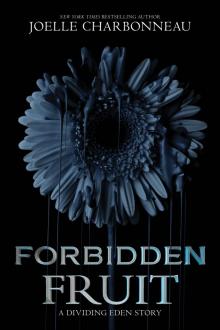 Forbidden Fruit
Forbidden Fruit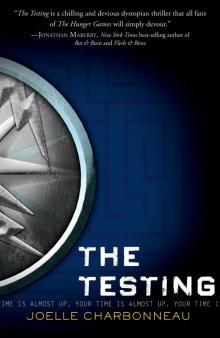 The Testing
The Testing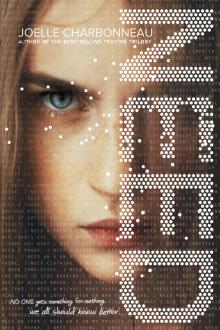 Need
Need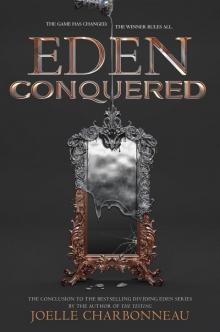 Eden Conquered
Eden Conquered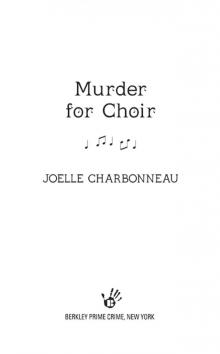 Murder for Choir
Murder for Choir Into the Garden
Into the Garden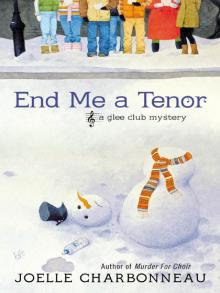 End Me a Tenor
End Me a Tenor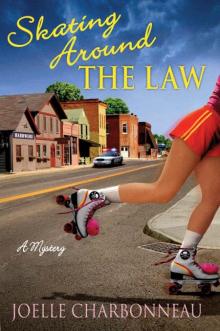 Skating Around the Law
Skating Around the Law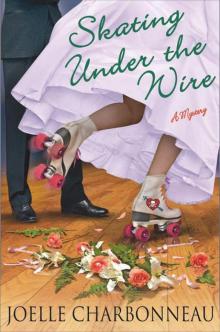 Skating Under the Wire
Skating Under the Wire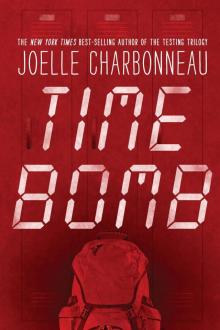 Time Bomb
Time Bomb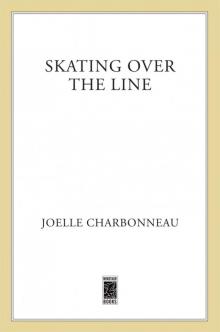 Skating Over the Line
Skating Over the Line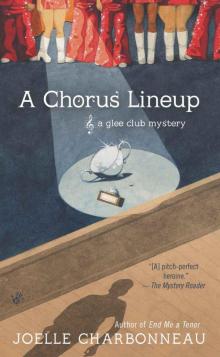 A Chorus Line-Up
A Chorus Line-Up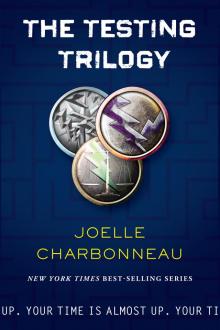 The Testing Trilogy
The Testing Trilogy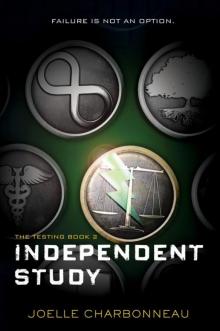 Independent Study
Independent Study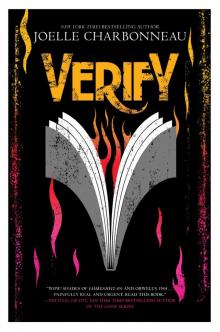 Verify
Verify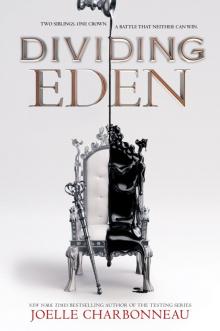 Dividing Eden
Dividing Eden Graduation Day
Graduation Day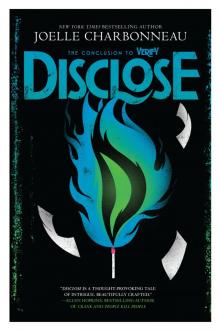 Disclose
Disclose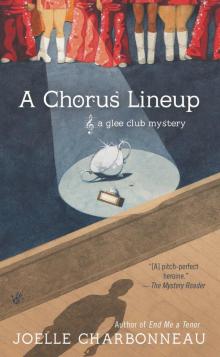 A Chorus Lineup
A Chorus Lineup